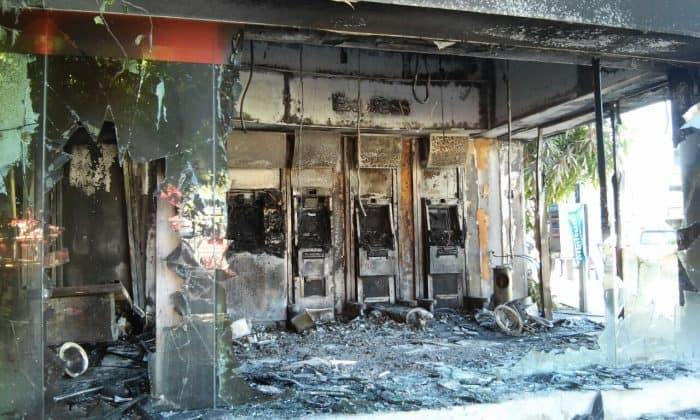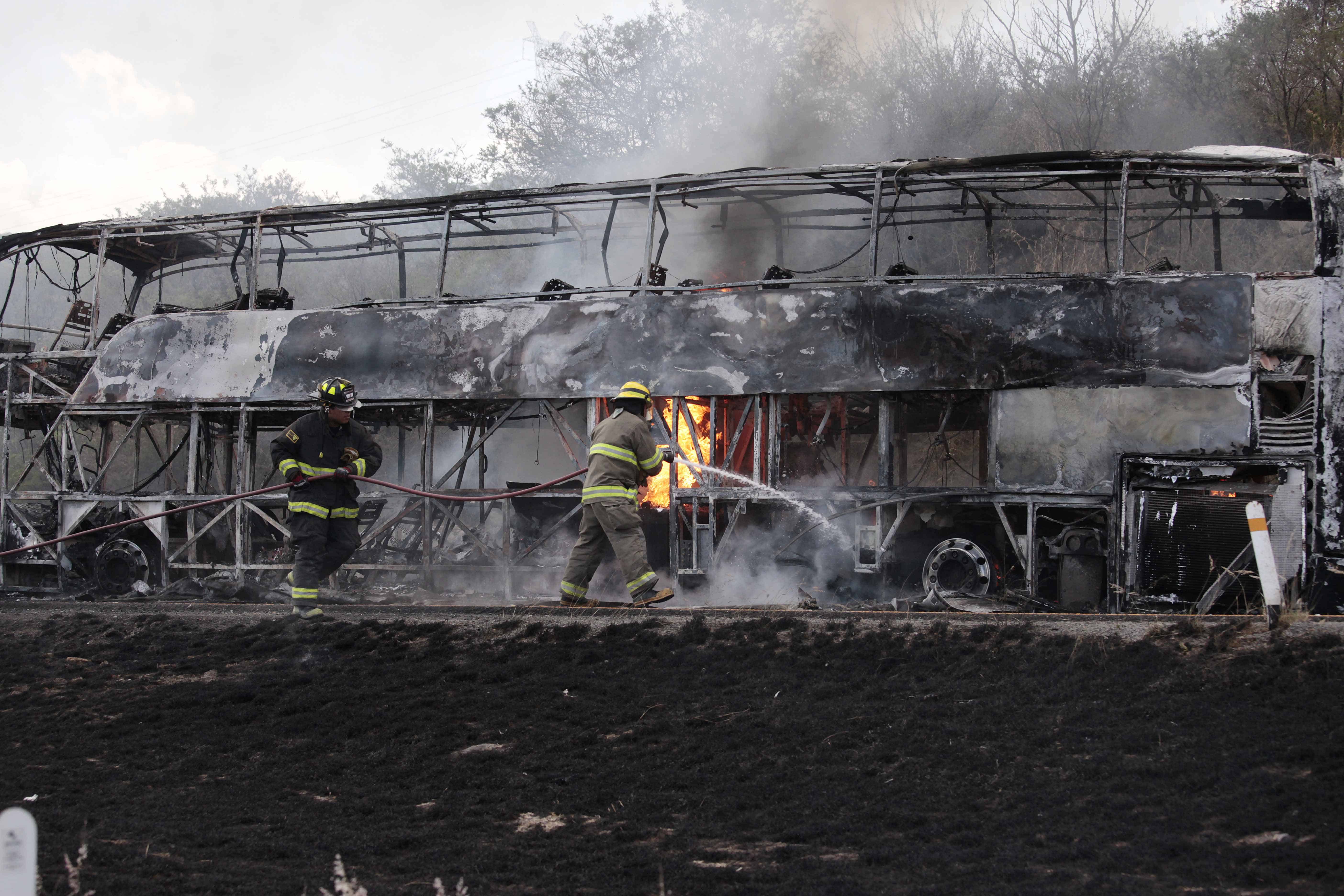MEXICO CITY — Gunmen shot down a Mexican military helicopter Friday in the western state of Jalisco, killing three soldiers, and set fire to buses, blocked roads and attacked banks and gas stations in a sharp escalation of anti-government violence.
In the past few months, the New Generation drug cartel has been ratcheting up its attacks against the government, including an ambush last month that killed 15 state police. State authorities have been worried that the federal government has left them undermanned against an ascendant heroin-and-methamphetamine-trafficking cartel.
See also: Mexican cartel hangs banners after cop massacre
On Friday, the Mexican army announced Operation Jalisco to try to wrest control from the cartel. The helicopter was forced to make an emergency landing when it came under fire while patrolling a rural road toward the Pacific Coast, according to the Mexican army. At least 10 other soldiers and two police officers were wounded in the incident.
“I lament the deaths of the members of the Mexican military in the fulfillment of their duty in Jalisco,” President Enrique Peña Nieto tweeted.
Lamento el fallecimiento de los elementos del Ejército Mexicano en el cumplimiento de su deber en Jalisco.
— Enrique Peña Nieto (@EPN) May 1, 2015
In the state capital of Guadalajara, gunmen set vehicles ablaze and blocked roads in at least 20 different areas, state officials said. Authorities declared a state of emergency and called on residents not to leave their homes. There were also reportedly fires in the coastal resort town of Puerto Vallarta.
The state governor, Aristoteles Sandoval, told a news conference that clashes in the state have killed seven people and wounded 15. Authorities have also made 15 arrests, he said.
Security in Jalisco has been deteriorating steadily as the New Generation expands its reach.

Luis Carlos Najera Gutierrez de Velasco, the state’s attorney general, described the group as the “least vulnerable, least attacked” of the major drug gangs and said that the federal government has not been doing enough to help the state. In an interview in his office in Guadalajara this week, he said the cartel has expanded to more than 10 states in Mexico, and much of the heroin being seized at the U.S. border is smuggled by its members. They have also gotten rich from the methamphetamine trade and by stealing gasoline from a pipeline that runs from the state of Guanajuato. “This group has gotten very strong,” he said.
“For many years, we have been fighting these criminal groups alone. We stated long ago the risks we have with this criminal group, and it appears it has not been a priority. We will keep fighting, with or without help,” Najera said. After the deadly ambush, he said, “we believed this would make the federal government pay more attention, but we don’t see any difference.”
Part of the reason the New Generation has grown stronger is that leaders of rival gangs, such as the Knights Templar in neighboring Michoacán state, have been killed or captured.
Najera said one of the main weapons of the cartel is the ability to corrupt or threaten police and local officials. He said he and top officials constantly receive threats from the cartel. Earlier this month, gunmen tried to kill the state security commissioner, Alejandro Solorio. In the past, he said, the cartel focused more on its business activities than shocking displays of violence. But he feared that the recent attacks on security forces were a warning to authorities to stay out of their way.
“They want to work freely,” he said. “We have to keep fighting this or any other criminal group, because if we stop fighting, there will come a time when we are so invaded that we won’t be able to do anything.”
© 2015, The Washington Post






